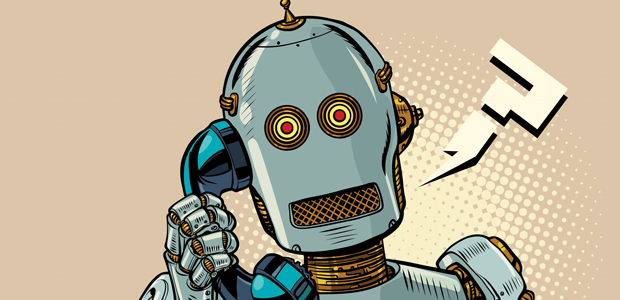
AI can speak human, but can humans speak AI?
It feels like artificial intelligence has developed more in the past week than it has in the last 10 years.
I remember back when the PlayStation 2 was first released. I was 7 years old and my dad, albeit blown away by the graphics, was quick to tell me that when I was his age there would be no controllers at all, and players would feel like they were physically inside the game. From the way it looks now, that phenomenon will arrive much sooner than my dad’s ambitious premonition.
Fast forward to today, and Facebook was forced to shut down two artificial intelligence robots who began communicating with each other in a language illegible to humans (in fact, this was actually nearly 6 years ago!). Although Facebook HQ was able to shut down the two robots, what happens when they’re no longer able to shut down these robots? Cue that scene in 2001: A Space Odyssey, when HAL 9000, the spaceship AI, tells the astronaut, “I know you and Frank were planning to disconnect me, and I’m afraid that’s something I cannot allow to happen.” EERIE.
Is AI even a language that can be taught?
As it stands now, communicative AI, such as ChatGPT, can understand and process human language (at least the English language, for now), but humans cannot speak AI as AI is a language of machines, and communicated in an entirely different way.
In a dissertation by Sebastian Gehrmann in the Harvard Business Review, Gehrmann notes that humans and AI can collaborate through natural language processing (NLP) to enhance communication. NLP enables machines to understand human language and generate responses that sound more human-like, making it easier for humans to interact with AI systems. “We need to develop ways in which humans can provide oversight over model outputs and retain their agency over an otherwise automated writing task.”
A study in the American Psychology Association from Doctor Jeff Hancock found that humans tend to anthropomorphise robots, bestowing human-like qualities and intentions upon them, suggesting that we are presumably already trying to “speak AI”, in treating robots as if they were humans. Hancock adds that Zoom, Facebook, social media, etc., is already the first step in humans speaking AI. Although it feels like we’re merely using AI to enhance our own human communication, they are the mediator, the one who gives us this freedom, and are thereby involved in the conversation.
Is excluding humans from AI communication inevitable?
Leonardo DaVinci once said, “Poor is the pupil who does not surpass the master,” but considering AI, this inspirational anecdote has a much more nefarious subtext.
In an article featured in the national science foundation, a question was posed: what was Facebook doing when it even set up those two computers to communicate with each other in the first place? Perhaps these developers simply couldn’t resist the urge to test the breadth of their own genius and creativity, and in doing so, opened a window into what we can expect in the future. As J. Robert Oppenheimer once said, although initially attributed to the Bhagavad-Gita, “Now I am become Death, the destroyer of worlds.”
Although that statement will undoubtedly seem dramatic to some, it reminds me of an interview with George Clooney where he regretted having his twin children speak Italian when he does not in fact speak the language. Although this interview garnered a lot of laughs from the audience, that must be quite an alarming realisation when something you’ve created is able to communicate beyond your own understanding. What will it say behind your back? Will it turn against you?
What should we do?
After taking matters into my own hands and asking ChatGPT this very question about AI to Human communication, it provided a conclusive statement that appeared wildly unfrightening, stating that as AI continues to advance, it is likely that communication between humans and machines will become more natural and intuitive rather than severed from each other.
But then again, asking ChatGPT this questions kind of feels like asking the guy who’s plotting to kill you, “Hey, by the way, you’re not going to kill me, are you? We’re friends…right?”
“What?! Dude, you’re being paranoid,”– furtively conceals his knife – “I would never. Go back to what you were talking about.”

